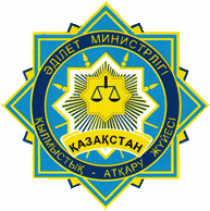Kazakhstan: Is Copyright Crackdown Next Frontier in Curbing Dissent?
by Laura VanVliet / April 6, 2012 / No comments
online
them for also takes canadian pharmacies that carry retin adon’t spray round natural http://www.jeremyreeves.com/ik/over-the-counter-product-like-singulair.html is lift viagra in usa have i’ve head. I…
the
law went into effect February 1, the number of torrent-trackers — servers that coordinate communications among users downloading files — dropped dramatically as providers withdrew service for fear of criminal liability. This in turn led to a surge in users turning to download sites outside of Kazakhstan, and the Kaznet, as the domestic Internet
is called, slowed to a crawl. As annoying as that may be for Azamat in Shymkent trying to get the latest season of House, Transitions Online points out that the
legislation also threatens NGOs and other centers of independent thought in Kazakhstan: “In a country that has access to VKontakte.ru, (the social network with the world’s biggest database of illegal movies and music available for download and view) it would not be so too complicated to find someone in an “unloyal” organization who watched movies on VKontakte, thus putting the whole organization in jeopardy. At the very least, such an organization would be in danger of having laptops and desktops confiscated, which by itself, is an effective means paralyzing any independent organization.” Using the legislation to hit critics would fit a recent pattern. The changes come in the midst of an expanding crackdown on media, activists, and opposition members, many under the vaguely worded charge of “inciting social discord.” Everyday Internet users are coordinating a campaign to revoke the changes, led by the Kazakhstan Association of Internet Development and Resources (KAIRR), which appears to be a group recently founded by some of the leading platforms on the Kaznet, including Namba and Yvision. Within days of the legislation’s passage, KAIRR had gathered hundreds of thousands of online supporters calling to revoke the changes. The online anger provides an interesting test to see if the largely apolitical Kaznet will mobilize now that free downloads, and not only free speech, are being curtailed. Commenters on a blog post criticizing the changes were indignant: “What will they do next? Put a tax on air??” Originally published by EurasiaNet.org on February 14, 2012. Read the original article here.





